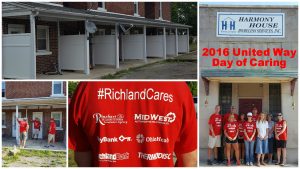Nonprofit organizations provide essential social services that benefit communities and their residents. They usually have a specific agenda on what they do and how they help. These unique organizations also require a unique insurance plan. Do you run a nonprofit or are you on the board of one of these organizations. Are you sure your nonprofit insurance is sufficient and that it covers all aspects of your organization?
Just like with any business you want to have property insurance to protect your build(ings) from physical damage. The other half to your typical business insurance is liability coverage. Certain businesses, such as nonprofit organizations, have some risks that other businesses may not have.
Shelters
Allowing others to inhabit your property can expose you to several liabilities. In addition to fire codes, health codes and tax codes, you may have additional requirements. These requirements could include:
- Structurally sound buildings
- Sanitary conditions
- Clean water supply
- Adequate air quality
- Sufficient space and security for each occupant
- Lack of lead-based paint hazards
- A certain number of smoke detectors
If you have a visitor to your shelter suffers harm due to unsafe or unhealthy conditions, that could result in a law suit. This is where having a uniquely tailored nonprofit insurance program will be there to protect you.
Click here for Business Insurance Information.
Board of Directors
A board of directors is usually assigned to elect officers, adopt policies and make major financial decisions. Although the members are usually volunteer, they carry risk along with the position. Even when acting in good faith, board members are subject to personal liability. This could affect their personal financial status.
One way to help assess the risk involved with holding a board position is to develop a volunteer risk management committee. This committee will identify all risks and pose solutions to minimize potential harm. Your nonprofit should educate it’s bard members on their legal duties, fiduciary duties and decision-making roles. They should also ensure the following:
- The organization is working within its stated mission
- Funds are spent according to the mission and spending decisions are known to donors
- The organization does not accept donations with conditions
- Individuals with personal agendas are not allowed to sit on the board
- Board members are not using professional contacts in dealings with the nonprofits
Once the risks are assessed the Board of Directors should also understand the following duties.
- Duty of Care: The individual should act in the way that a reasonable person would in a similar position and under similar circumstances. Acting under good faith is an essential part of the functions of the board.
- Duty of Loyalty: The individual should place the organization’s financial interests as the primary responsibility. As a board member, one should not use their position for persona gain, financially or otherwise. In addition, individual should remain honest about business ventures that pose a conflict of interest when acting as a representative of the organization.
- Duty of Obedience: The individual should try to further the mission of the nonprofit by supporting board decisions and implementing policies as they are outlined.
Nonprofit Insurance Options
In summary, as a nonprofit you have a very specific set of needs. Your run of the mill insurance policy may not be the best fit for your unique needs.
Nonprofits should consider the following types of policies:
- Commercial General Liability: Protects volunteers and employees from bodily injury and personal injury claims.
- Workers Compensation: Some states allow organizations to cover volunteers in the event that they are injured while on the job.
- Automobile Liability: Coverage is needed for volunteers operating vehicles while working on behalf of the organization.
- Directors’ and Officers’ Liability: Protects directors and officers against employees, clients and community members serviced by the organization. Specifically, D&O provides coverage for discrimination, harassment and wrongful termination claims. Provisions within the Americans with Disabilities Act of 1990, the Family and Medical Leave Act of 1993 and the Civil Rights Act of 1991 have led to claims against nonprofit organizations and their respective boards.
- Personal Liability
As a trusted adviser for several local nonprofit organizations, we are here to help. Call us today to start working on the nonprofit insurance plan for organization.
